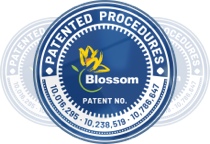Mistake #1
Not Taking Bariatric Vitamins
After bariatric surgery, it is crucial that clients adhere to appropriate vitamin intake. Because patients eat such a low-calorie diet, taking the appropriate supplements is important. While not taking vitamins may not show any consequences immediately, it can over time. Levels may seem normal for a while, but then begin to drop, causing a series of health issues such as:
- Heart disease
- Loss of bone density
- Tooth decay
- Memory loss
- Difficulty focusing
- Fatigue
- Impaired vision
- Hair loss
Mistake #2
Not Getting Adequate Physical Activity
Once you are cleared for physical activity, which is generally 2 weeks’ post-surgery, we recommend you get your body moving for at least 30 minutes a day. It’s important to find something you like to do! Swimming or walking is a great place to start. There are many gyms that offer low cost membership fees and some offer group classes!
Mistake #3
Poor Water Intake
The body needs water to aid in the healing process after surgery. Appropriate intake of water also helps patients to feel more energized. Water also increases weight loss in patients and avoids detrimental health issues. It’s important to remember to hydrate throughout the day and avoid chugging or gulping as it can be painful. If you are not a fan of regular water – try water infused with lemon, cucumber and/or ginger!
Mistake #4
Drinking Alcohol
While alcohol does not provide any nutritional value, it does contain calories. Each gram of alcohol contains 7 calories that the body has no use for. It is especially important that gastric bypass patients avoid alcohol. Gastric bypass causes alcohol to enter the bloodstream at a more rapid rate. It is possible to introduce alcohol into your diet after surgery with the consent of a dietitian or physician. But it is best that alcohol not be introduced too quickly in order to avoid complications and unnecessary calories.
Mistake #5
Consuming Carbonated and/or High Calorie Beverages
Drinking carbonated and/or high calorie beverages after bariatric surgery puts clients at risk or excess weight gain or discomfort to the sleeve. Some carbonated beverages, such as soda, contain high levels of sugar. Sugar is not a recommended source of calories for our clients and can lead to lack of weight loss in patients. Carbonated drinks can also make it difficult to distinguish between gas pain and more serious pain right after surgery.




